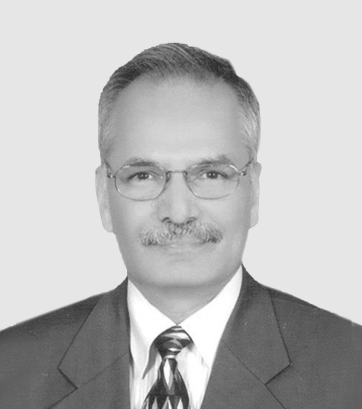Giving diplomacy a chance
By launching its full-scale invasion of Ukraine last week, Moscow has triggered a crisis in its relations with the West and Nato countries. With the sole exception of China, UAE, India and Syria, none of the other countries has supported Mr. Putin’s military incursion into Ukraine as demonstrated by a UN Security Resolution that condemned the Russian military move and was vetoed by Moscow.
Media reports indicate that Ukrainians reservists and military units loyal to President Zelensky continue to defy the Russian military onslaught by offering stiff resistance to the invading force. Faced with this tough military resistance, Moscow’s expectations of an easy military victory over Ukraine so far not been materialized.
Why did Putin launch an invasion? Part of the reason lies in Mr. Putin’s “easy victory syndrome”.
Moscow always believed that Ukraine was part of its sphere of influence and the West had recognized this to be case. Yet, as argued by, Ted Galen Carpenter, “the Obama Administration’s shockingly arrogant meddling in Ukraine’s internal political affairs in 2013 and 2014 to help demonstrators overthrow Ukraine’s elected, pro Russia President was the single most brazen provocation, and it caused tension to spike. Moscow immediately responded by seizing, and annexing Crimea and a new cold war was underway with a vengeance.”
At the Munich security conference, 2007 Putin said, “NATO had put its front line forces on our borders.” Putin complained NATO’s expansion “represents a serious provocation that reduces the level of mutual trust. And we have the right to ask; against whom this expansion intended? And what happened to the assurances of our western partners made after the dissolution of the Warsaw Pact?”
The 2014 annexation of Crimea was a precursor to the February 24 invasion of Ukraine by Moscow.
As Mr. Carpenter has suggested: “History will show that Washington’s treatment of Russia in the decades following the demise of the Soviet Union was a policy blunder of epic proportions. It was entirely predictable that NATO expansion would ultimately lead to a tragic, perhaps violent, breach of relations with Moscow. Perceptive analysts warned of the likely consequences, but those warnings went unheeded. We are now paying the price for the U.S. foreign policy establishment’s myopia and arrogance.”
But a major part lies in the Western countries’ inability to correctly read the adverse reaction of their insistence on NATO’s eastward expansion to include Ukraine. The West totally forgot the lessons inherent in Moscow’s annexation of Crimea and Donbas region in 2014 that was part of Ukraine.
Moscow justified that annexation on geopolitical reasons arguing that it could not remain indifferent to the security threat posed to its Black Sea Fleet by increasingly pro-Western Ukrainian leadership. Additionally, 2.4 millions pro-Russian people living in Crimea had expressed their willingness to maintain their strategic ties with Moscow.
Part of Putin’s calculus vis-à-vis Ukraine was that by amassing Russian military troops under the guise of military exercises he will generate enough coercive diplomatic pressure on Ukraine that it would have no recourse, but to cave in to Moscow’s demands for security guarantees including Ukraine’s decision snot to join Nato.
Moscow misperceived that the Western world led by Washington would mount such a united and cohesive response to its invasion of Ukraine. Putin has been made to pay for its aggression against Ukraine and under the biting sanctions the Western world stands united with Mr. Zelensky, the actor turned leader of Ukraine. The German decision to cancel the Nord Stream 2 gas pipeline, along with an increase of 100 billion euros and its lifting of ban on supply of arms, tanks, artillery by third parties to Ukraine had not been anticipated by Putin.
In response to these punitive measures especially the ban on travel of Mr. Putin and Mr. Lavorov and demonization campaign launched in Western media against Moscow’s top leadership, Mr. Putin has upgraded Russian nuclear forces to a higher alert level. Moscow has also threatened to pull out of all arms control agreements. This has renewed fears that unless diplomacy is given a chance the world would once again be living under the dark shadow of nuclear war.
Yet, Moscow deep down knows very well that is it is in a position to weather the punitive storm kicked up by its invasion of Ukraine. For one thing, sanctions can hurt both sides and therefore they cannot be sustained for too long. Second, Moscow is sitting on a pile of foreign exchange reserves, to the tune of 600 billion dollars, that it can use to mitigate the adverse effects of these sanctions on its economy. Third, Moscow might get a bloody nose in this conflict, but it is the stronger force that ultimately carries the day. Putin knows well that Mr. Zelensky is a weak opponent who is being prompted from his Western friends to carry on his fight with Putin who is known to be a ruthless character, relentless and wedded to the idea of resurrecting Moscow’s imperial past.
It is somewhat encouraging that by opening talks to de-escalate tensions between Moscow and Ukraine, a compromise might be struck that would be acceptable to both sides. Henry Kissinger has suggested that Ukraine should become part of the EU while renouncing its ambition to become part of NATO. This is an eminently sensible suggestion which must be given due consideration for the sake of peace and stability in Europe.
The writer is a political scientist and defense analyst










